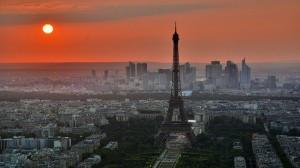GR.–Population growth, land use, and resource harvests are destroying the Earth’s natural systems. The study described below reviewed thousands of research reports and concluded that we might have already taken so much from nature that collapse of natural ecological systems–vegetation, soils, animal webs–is inevitable without human intervention. In other words, it’s inevitable.
Species loss has pushed ecosystems past a danger threshold across more than half of the terrestrial world
 Climate News Network.–“Over the decades, in both laboratory experiments and in real-world observations, naturalists have confirmed that as the diversity of living things in a forest or a field or grassland is reduced, so is the ecosystem’s resilience − its capacity to go on supporting life and turning sunlight, air and water into green growth to nourish all other creatures.
Climate News Network.–“Over the decades, in both laboratory experiments and in real-world observations, naturalists have confirmed that as the diversity of living things in a forest or a field or grassland is reduced, so is the ecosystem’s resilience − its capacity to go on supporting life and turning sunlight, air and water into green growth to nourish all other creatures.
“And the greatest changes have happened in the last century or so as human numbers, and human economic exploitation, have soared.
“It’s worrying that land use has already pushed biodiversity below the level proposed as a safe limit,” said Andy Purvis, life sciences research leader at the Natural History Museum in London, and leader of the PREDICTS team.
“Decision-makers worry a lot about economic recessions, but an ecological recession could have even worse consequences – and the biodiversity damage we’ve had means we are at risk of that happening. Until and unless we can bring biodiversity back up, we’re playing ecological roulette.” Continue reading: Scientists warn of ecological recession as biodiversity declines | Climate Home – climate change news

